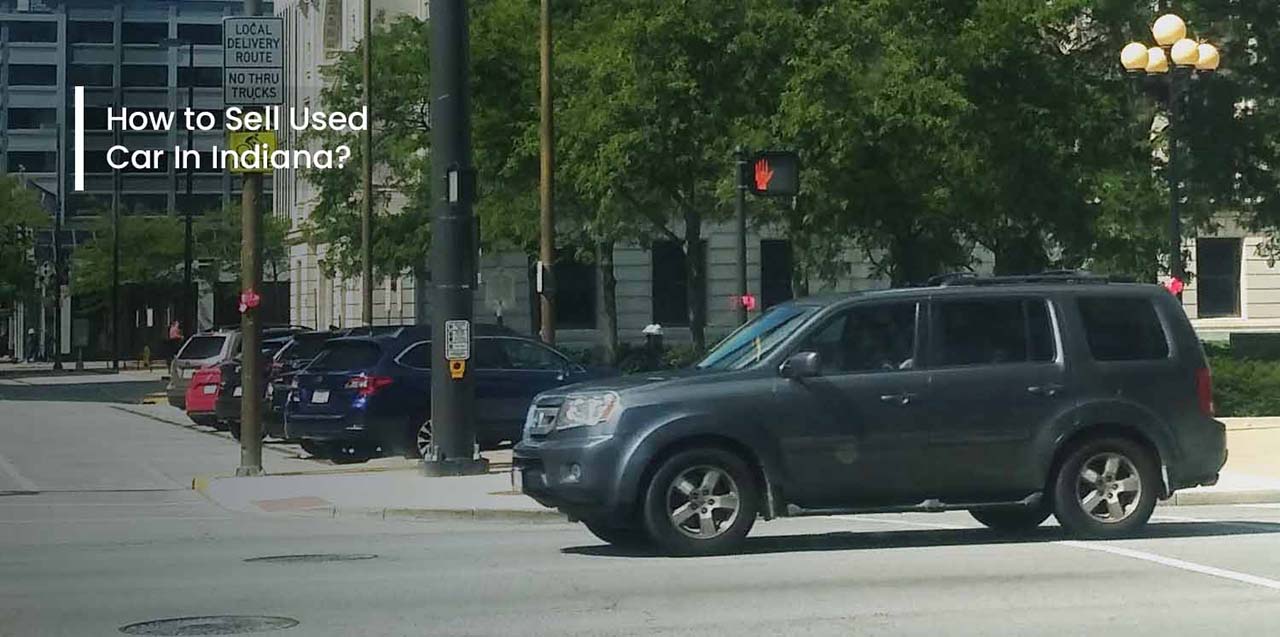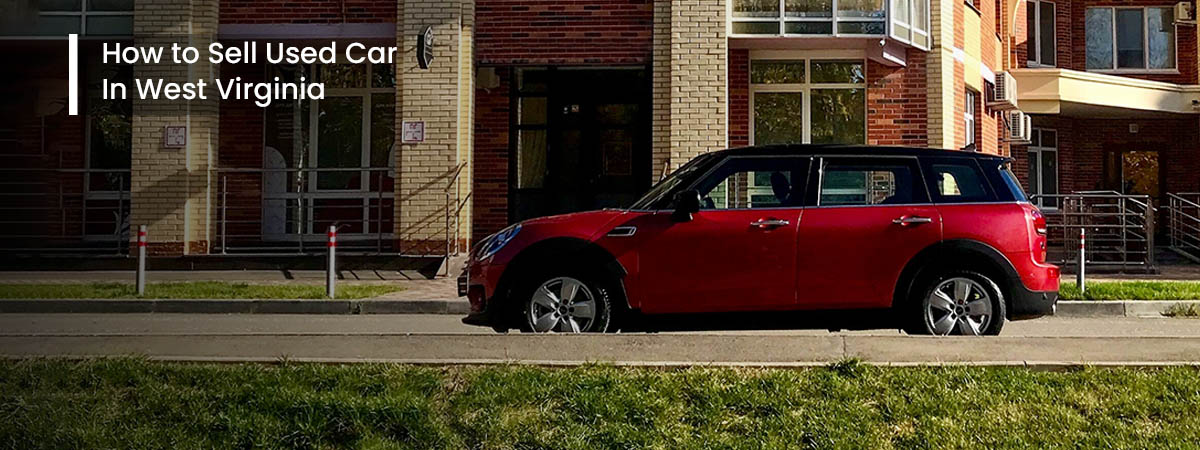How to Sell Used Car In Indiana?

The procedures and approach for selling a car online vary by state. Discover how to sell your used car or truck in Indiana confidentially.
If you reside in the Great Lakes Plain, the Tipton Till Plain, or the Southern Hills of Indiana and want to sell your old automobile or truck privately, you've come to the correct location. With an estimated 2.3 million registered trucks and vehicles in Indiana, it's no surprise that cashforcarsinc has been chosen by thousands of Hoosier State private vehicle sellers. We've described the methods and documents needed to sell a car in Indiana so you may sell your automobile promptly and for the maximum amount of money.
Remember that most states regard the car title as a legal document, so use the legal names (no nicknames) of both individuals involved as well as legible handwriting in black or blue ink. Mistakes, typos, and the use of white-out may render the document null and worthless, so be cautious and take your time filling it out.
If you want to give a vehicle to a relative, you can transfer the title using the identical procedure described below. If you have any issues regarding inheriting a car, you should contact the Indiana BMV immediately.
Step 1: Allow the buyer to have a third party assess the vehicle
Many private automobile buyers pay for a pre-purchase vehicle check performed by a skilled and certified auto technician of their choice. Although the buyer pays for the inspection, the seller and buyer must agree on the date and location of the inspection. If the inspection reveals any problems with the vehicle, you should save the report for your records as the seller.
The Physical Inspection of a Vehicle or Watercraft form, Indiana BMV form 39530, can be completed by an approved inspector, who might be a BMV employee, a police officer, or an employee of a dealer with the appropriate certification.
Step 2: Organize and collect all vehicle papers
Find all maintenance records, the owner's manual, and other vehicle papers. If you can offer the buyer extensive and thorough maintenance documents, it will give the buyer confidence that the automobile has been properly and regularly maintained. In Indiana, any of the following are acceptable as ownership documentation and should be supplied to the buyer if available:
Manufacturer Certificate/Statement of Origin
Certificate of Salvage
Court Order assigning ownership
If a lien exists on the title, the lienholder must release interest in the vehicle before it may be sold. This can be accomplished by either the seller paying off the vehicle or the lienholder obtaining a letter of lien release. As an alternative to a lien release letter, you might acquire a general affidavit (state form 37964) signed by the individual lienholder.
Step 3: Create a Bill of Sale
A bill of sale must be completed for private-party automobile purchases in Indiana. Indiana BMV Form 44237 is the official bill of sale form for the state and must be filled out with the following information:
Vehicle Year, Make, and Model
Vehicle Identification Number (VIN)
Purchase Price
Date of Sale
The buyer's legal complete name, address, and signature (s)
The seller's legal complete name, address, and signature (s)
A bill of sale is not only required by Indiana law, but it also offers legal protection for both the buyer and seller.
In Indiana, private car transactions are subject to a 7% sales tax on the purchase price. To guarantee that the correct amount of tax is paid to the state, the purchase price indicated on the title and the bill of sale must match and be exact. If you give a car to a relative, the transaction may be exempt from sales tax and only requires the completion of Indiana BMV Form 48841. A bill of sale cannot be used to transfer vehicle ownership for a vehicle that is required by law to have a certificate of title. According to the BMV, a Bill of Sale may be produced as proof of ownership in certain instances.
Step 4: Change the title
If the vehicle's title has been lost, stolen, or significantly damaged, you can obtain a duplicate title in Indiana via https://www.in.gov/bmv/, your local BMV location, or U.S. mail. Visit the BMV's website and select your chosen option for submitting a duplicate title application. It will necessitate the completion of Form 205, which is an application for a certificate of title for a vehicle. Additionally, Indiana's Bureau of Motor Vehicles supplies people with this list of various automobile title forms. Fill out and submit an Affidavit for Certificate of Title Correction (Form 55582) if your Indiana automobile title needs to be repaired.
The term "DUPLICATE" is conspicuously written on the face of a duplicate Indiana title, voiding the original title. A valid picture ID, such as a driver's license, a state-issued ID, a passport, a school ID, a military ID, a bank card, a probation card, a work ID, or a membership card, is required when purchasing a duplicate title.
When privately selling an automobile in Indiana, both the buyer and seller must fill out the applicable areas on the back of the title. If the title lists more than one owner (seller), both must print and sign their names. This information contains the buyer's and seller's legal names, addresses, and signatures, as well as the date of the transaction, the odometer reading, and the purchase price. When this is filled out correctly and legibly, it makes it simple for the buyer to transfer registration and obtain a new plate through the BMV. If this applies to your circumstances, Indiana also enables car ownership to transfer upon death (TOD) to a beneficiary.
The National Highway Traffic Safety Administration's (NHTSA) odometer disclosure standards, which affect some private car purchases in Indiana, were amended in December 2020. Any vehicle of the model year 2011 or newer (2012, 2013, etc.) that is transferred between January 1, 2021, and December 31, 2030, will require an odometer disclosure. Beginning January 1, 2031, every vehicle less than 20 model years old will be required to have an odometer disclosure. Previously, the NHTSA only mandated disclosure for the first ten years. Cars manufactured before 2010 are exempt from odometer disclosures. Odometer Disclosure Form 43230 is available for download in Indiana.
Step 5: Take off your license plates and cancel your insurance
Before passing over the car to the buyer, the seller must remove their license plates. If you do not, you may be held accountable for any infractions that occur after the buyer takes ownership of the car. Indiana does not compel you to return the plates to the BMV, and you, the seller, have the option of keeping the plate and transferring it to another vehicle you own or simply letting it expire. Make sure you cancel your insurance as soon as possible following the sale so you don't have to pay to insure a car you no longer own.
Visit the Indiana Bureau of Motor Vehicles' website for further information.
The Easier Way to Sell Your Car
Now that you've learned everything there is to know about selling a car in Indiana, it's time to determine where to list it. Sell your car in Illinois is simple with Cashforcars, Inc. With ready-to-sign state documentation, encrypted chat, and more, our platform provides all the tools and recommendations you need to make the transaction a breeze. Also get more information about How To Sell Used Car In Idaho?





